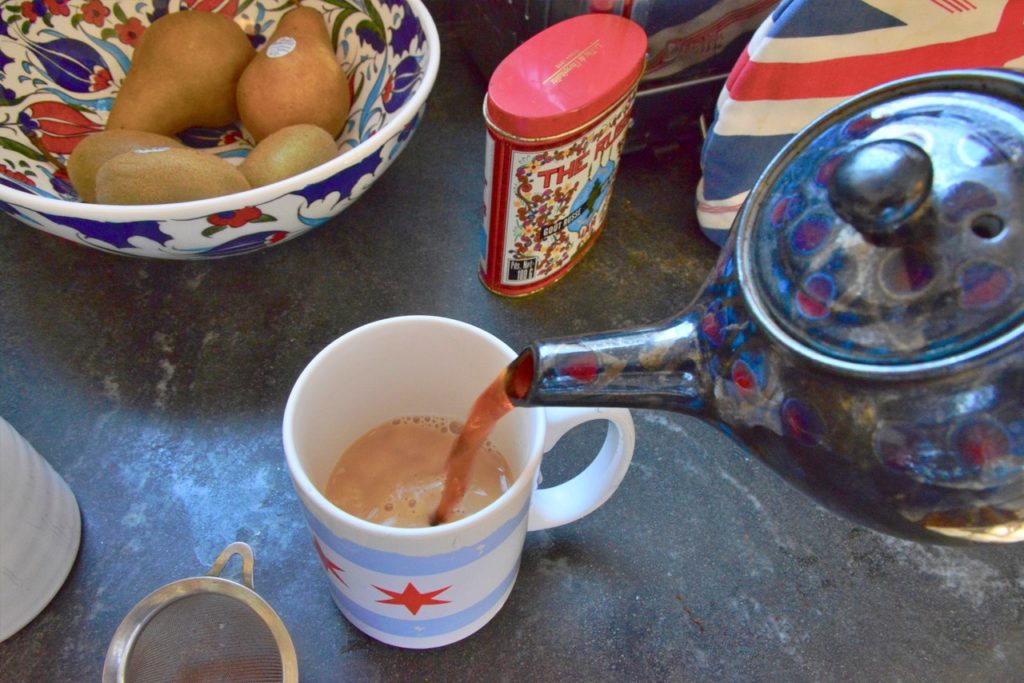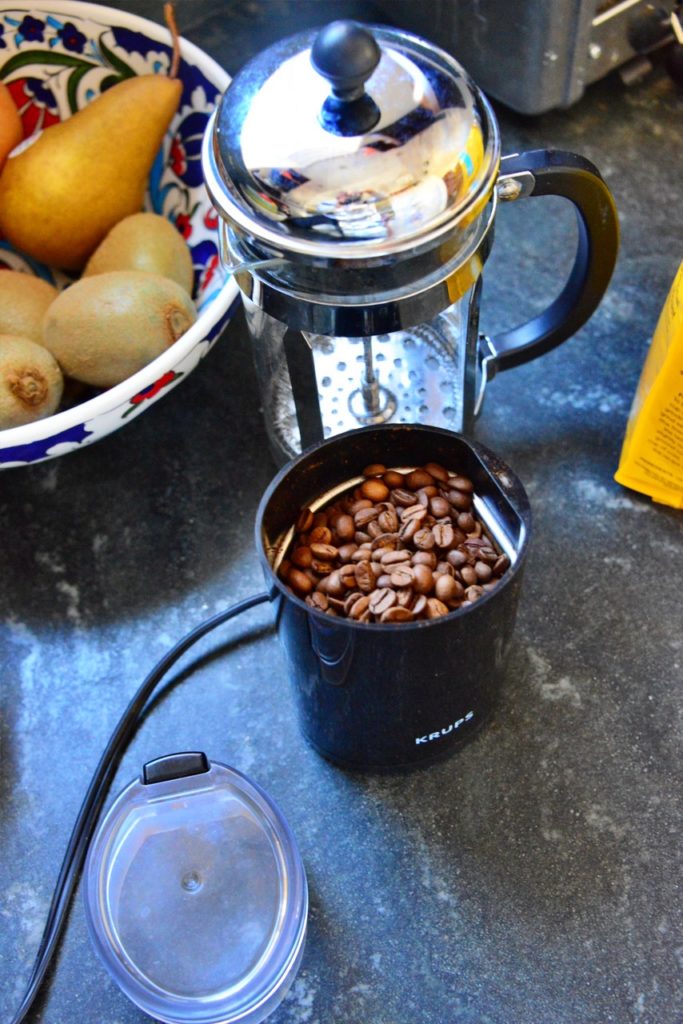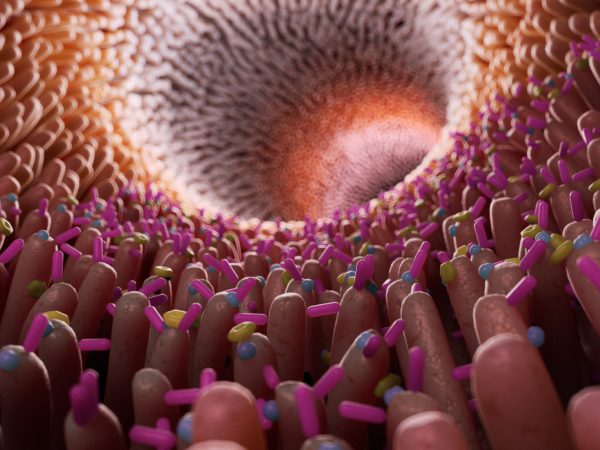Either Tea or Coffee Could Protect You from Stroke and Dementia, But Drink Both Each Day and They’re Even More Effective
It stood to reason that tea and coffee, minimally processed plant products dissolved in water, were good for our health. The evidence for the benefit as well as the pleasure they give has accumulated rapidly in recent decades, including that separately each is able to reduce the risk of stroke and of dementia.
Now, however, a study shows that the protective power of these two giants of the beverage world is multiplied when they are both consumed. Is this a synergistic relationship by which they react together in the body, or do they simply complement each other in their effect on blood vessels and inflammation?
By following the fortunes of more than a third of a million people over at least a decade, the research published in PLOS Medicine confirmed that participants who drank several cups a day of EITHER tea or coffee reduced their risk of stroke (especially the type caused by a blood clot rather than bleeding in the brain), and dementia. But it was the effect of drinking BOTH coffee and tea every day that stood out from the research: participants who drank two to three cups of each reduced their risk of both stroke and dementia by around 30%. Drinking coffee alone, or in combination with tea, reduced the risk of dementia resulting from damage to the brain caused by a stroke.
Stroke and dementia represent 42% and 10% respectively of all neurological impairments, but it’s estimated that up to 9 out of 10 strokes and more than a third of dementias could be prevented. These two conditions alone impose a huge burden of suffering and disablement across the world so any way of reducing the risk, even marginally, has potentially far-reaching consequences.
It was already clear that the polyphenols (a class of the phytonutrient antioxidants found in plants) in tea had an anti-inflammatory effect, reducing the unnecessary activation of the immune system and the collateral damage caused by it. One in particular, a catechin called epigallocatechin gallate (often abbreviated to EGCG) acts as an antioxidant, mitigating the damage caused by free radicals, (see article, Oxidation Is killing Us. Antioxidants in Our Food…). EGCG appears to protect against LDL cholesterol and excessive glucose in the blood, as well as inhibiting excessive inflammation.

Tea contains a range of anti-inflammatory and antioxidant polyphenols, that might help to reduce the risk of stroke and dementia.
Another important function of EGCG is to restrict the formation and build-up of beta-amyloid in the brain which is associated with Alzheimer’s and Parkinson’s disease. Beta amyloid is a waste product found in the spaces between cells in the brain and is formed when enzymes break down amyloid precursor protein into beta-amyloid of varying lengths. The longer strands are more inclined to misfold and stick together in the plaques associated with dementia, but EGCG has been shown to inhibit the process.
Similarly, coffee is a rich source of antioxidants, including the phenolic compound chlorogenic acid. A review of several studies investigating the relationship of coffee drinking with the sort of arterial disease that increases the risk of stroke and vascular dementia suggested that moderate consumption was significantly associated with a reduced risk of cardiovascular disease, congestive heart disease, and stroke. The lowest CVD risk came with three to five cups a day.
The review noted that drinking coffee had been linked with greater sensitivity to insulin (which guards against diabetes) and a reduction in biological markers of inflammation, including the important indicator C-reactive protein.
Perhaps most significantly, chlorogenic acid has been associated with an improvement in the functioning of the lining of blood vessels (the endothelium). Endothelial dysfunction is a leading cause of ischemic stroke, the kind caused by a blood clot blocking off the supply of blood to part of the brain. Chlorogenic acid might act by stimulating the enzyme nitric oxide synthase to produce the molecule nitric oxide which dilates blood vessels.

Coffee is rich in antioxidants, including compounds that complement those in tea.
The authors of the latest study in PLOS speculate that rather than sparking some sort of chemical reaction the beneficial phytonutrients in tea and coffee complement each other’s actions. Firstly, each has been shown to reduce inflammation, increase sensitivity to insulin, and improve the flow of blood against the lining of blood vessels, so simply multiplying them is likely to increase any benefit. But secondly, tea and coffee contain different antioxidant and anti-inflammatory compounds, for example, chlorogenic acid (and other hydroxycinnamic acid) compounds in coffee, and the catechins in tea, with the result that together they achieve a broader impact. They also appear to work their effect on different “target” molecules, whether in the lining of blood vessels, in other cells or within the blood. In this way, inflammatory or oxidizing molecules and processes left untouched by one set of compounds might be dealt with by the other.
There’s plenty of room for increased consumption of both tea and coffee. In the United States just over half (51.2%) of the non-alcoholic drinks consumed by adults consist of water, whether carbonated or not. Coffee comes next with one in seven (14.9%) of the drinks consumed, an average of 4.5kg (10lb) per person. Coffee is followed by sweetened drinks which make up just over a tenth (10.2%) of the total. Only then comes tea (8.7%), followed by fruit drinks (5.6%) milk (5.5%) and diet drinks (3.8%). Americans drink proportionally more tea and coffee as they get older.
The latest confirmation of the combined benefits of tea and coffee is all the more persuasive because it includes so many people – 365,852. Participants were recruited from the UK Biobank, so, although they were aged between 50 and 74 and were entering the years of elevated risk for stroke and dementia, they were volunteers who often prove to be relatively healthy.
The researchers faced a formidable task in assessing the effect of tea and coffee drinking, based on the recall of individuals for what they consumed. Given the wide range of competing risks affecting stroke and dementia the study had to take into account – control for – a long list of other factors, such as age, sex, ethnicity, BMI, income, physical activity, smoking and alcohol, as well as medical markers such as cholesterol, and a history of heart disease or hypertension.
The diets of participants also had to be controlled for in calculating the effects of coffee and tea, including their consumption of sugar sweetened drinks. This might be one of the most critical adjustments of all. Not only do sugary drinks have a damaging effect on health, but they make almost any other non-alcoholic drink a healthy one. For every cup of coffee or tea participants drank during the decade under scrutiny they didn’t drink a can of soda or a glass of (naturally sugary) orange juice. Even if tea and coffee had the sole effect of displacing sugar sweetened drinks they’d be hugely beneficial to health.


